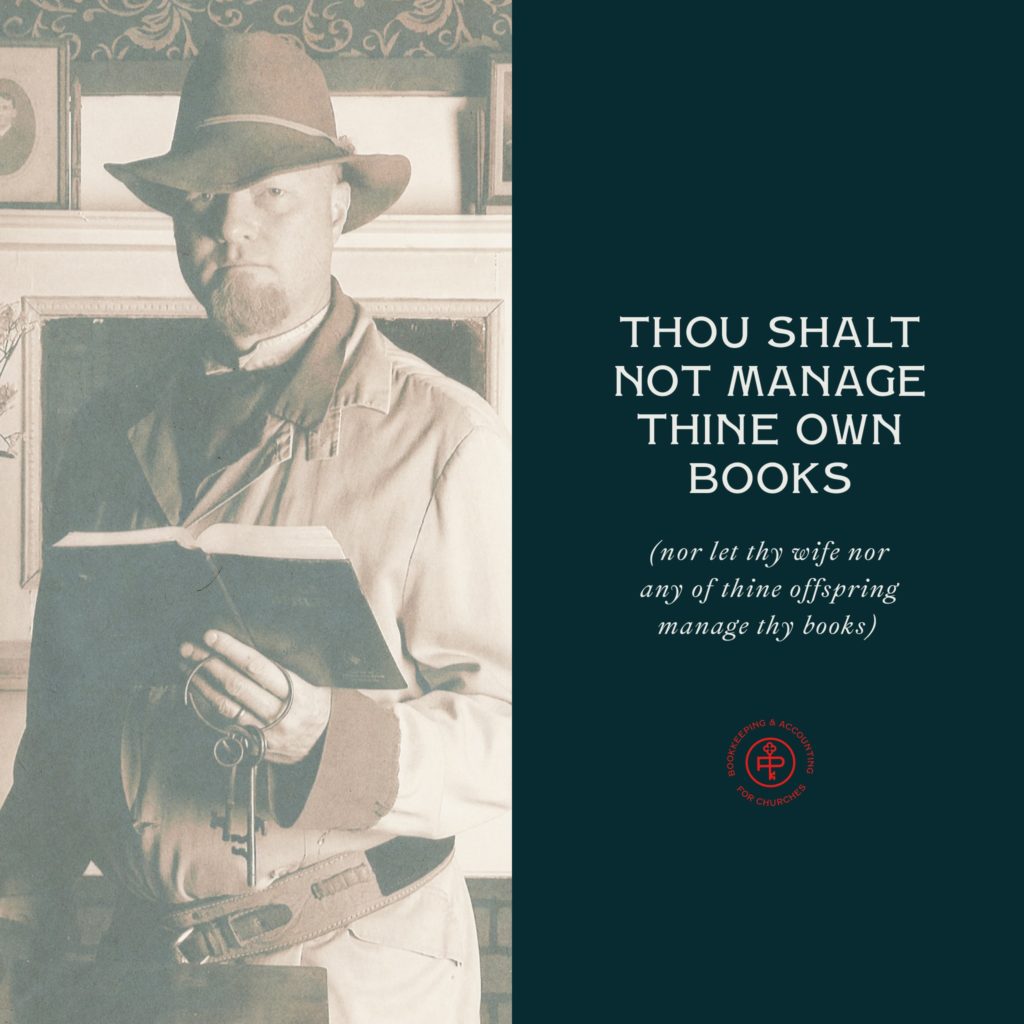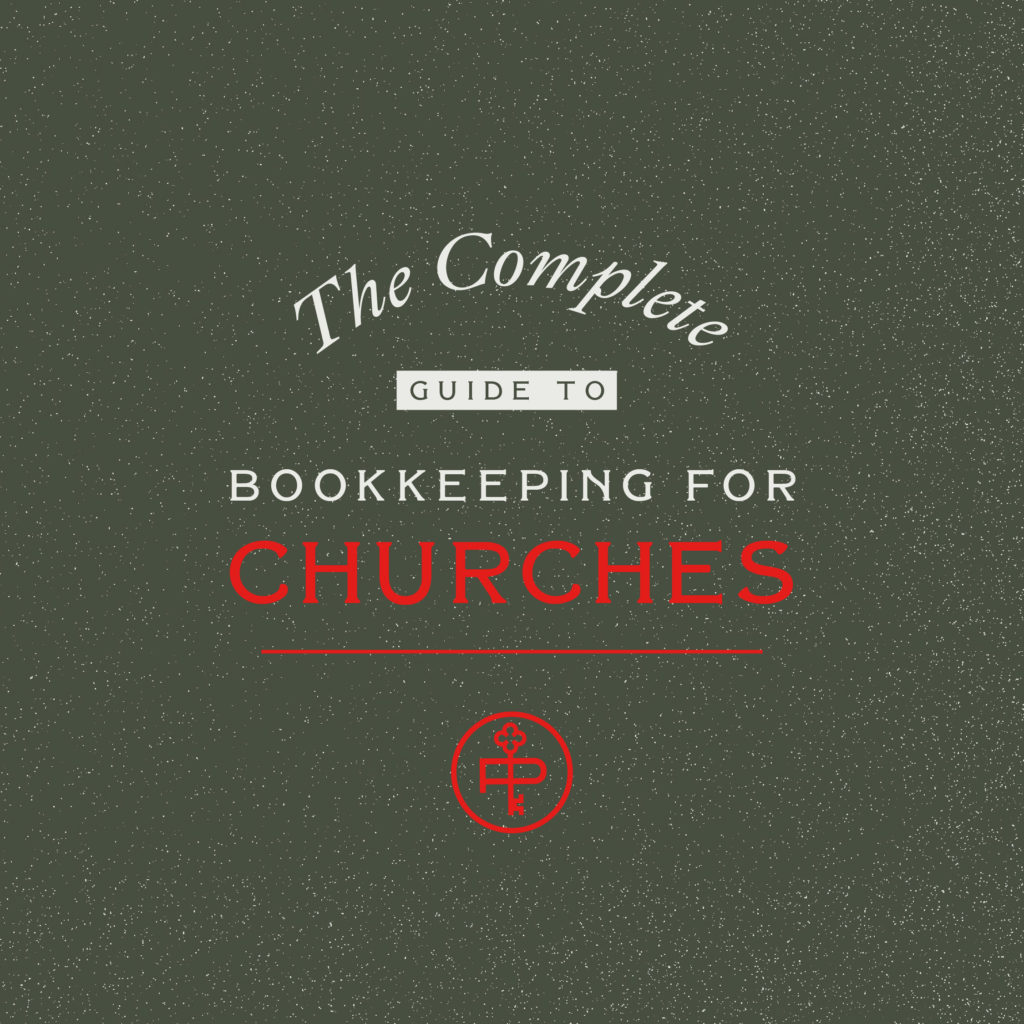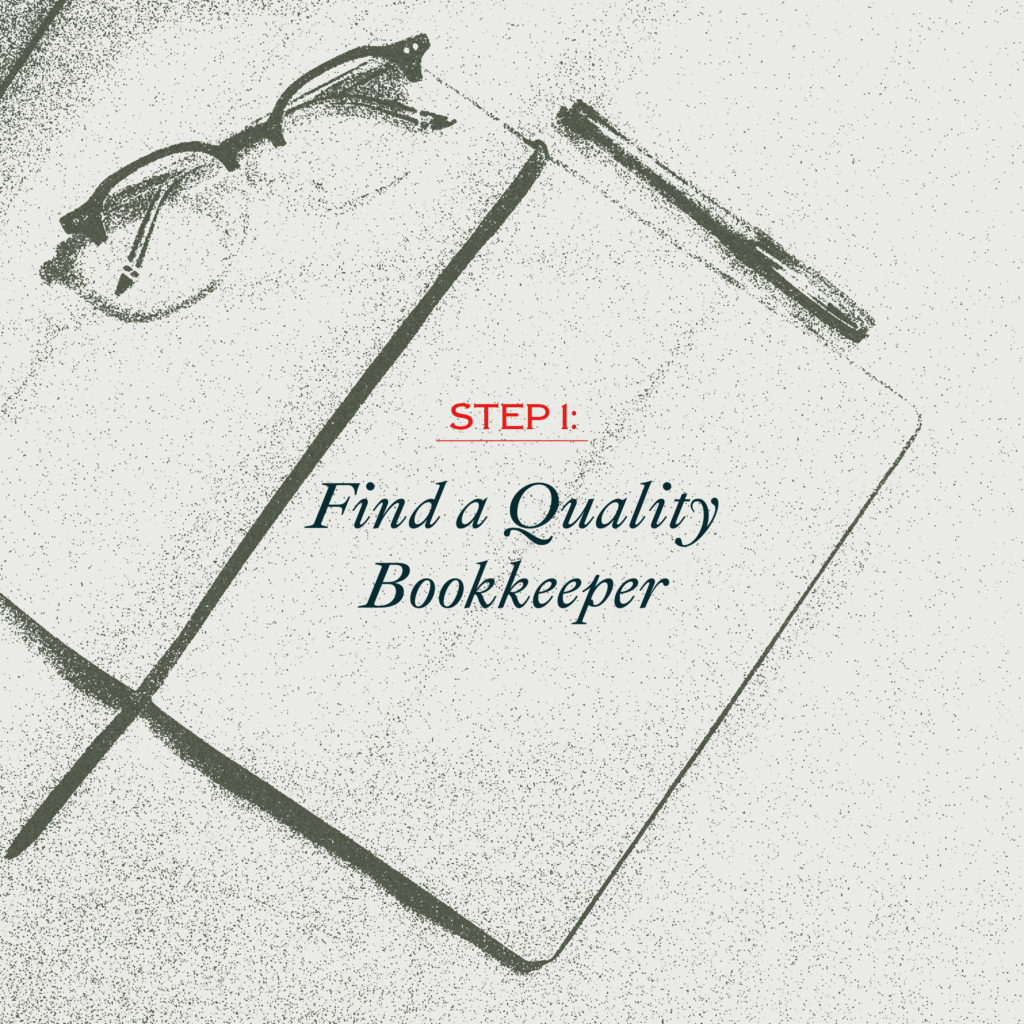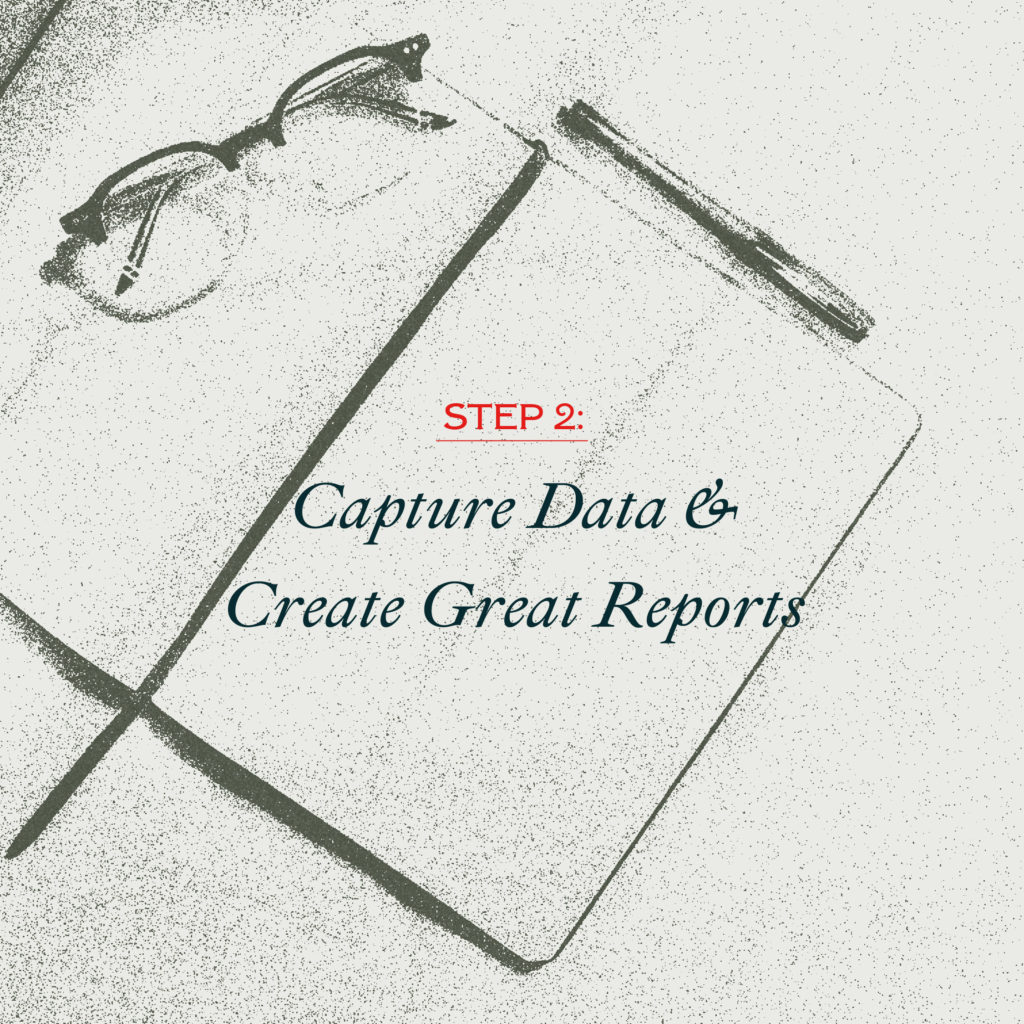Reveal the truth about your ministry’s finances. Then, tell an impressively accurate and inspiring story … using nothing but numbers.
Quality Bookkeeping for Churches = Leads to Effective Ministry
As a pastor, you wear a lot of hats: leader, writer, speaker, maybe even office manager. One hat you probably never dreamed of wearing: church bookkeeper.
(We don’t think you or anyone you’re related to should be your church’s bookkeeper, by the way. Church planters, we’re looking at you!) As the Reverend says…

Church bookkeeping sounds simple. It’s the process by which you ensure every dollar has been appropriately categorized, is easy to report, and aligns with the total amount in your bank account.
Even more importantly, it’s about integrity. When someone gives money to outreach, you need to ensure no one spends it on new audio equipment for the worship leader’s office. (Even though she probably needs it!)
Quality church bookkeeping doesn’t just show you numbers. It shows you a story.
That’s right, the depth and breadth of your ministry’s story—much of the heart-lifting, life-changing impact you’re making—is hiding in a spreadsheet and waiting to be revealed. Where each dollar goes and what it accomplishes says more about your church than most leaders realize.
It’s the story of your present missional effectiveness and your church’s future potential.
Quality church bookkeeping doesn’t just show you numbers. It shows you a story … It’s the story of your present missional effectiveness and your church’s future potential.
liveyourParable.com
It’s Time to Break Down the Financial Language Barrier

Odds are, your favorite part of ministry isn’t keeping up with the financials. So it’s understandable that a spreadsheet full of numbers doesn’t spark joy.
- “I pay the bills. Isn’t that the most important thing?”
- “We don’t reconcile our books regularly, but we have plenty in the bank. Right?”
- “I know I need to spend time on our budget, but it feels so complicated that I don’t know where to start.”
- “Yeah, we have a volunteer that does that. I’m great at empowering volunteers! Now, where is that spreadsheet, again?”
Any of those sound familiar?
When it comes to church bookkeeping, it can be easier to “set it and forget it” if nothing seems out of place. But as intimidating as it feels, your numbers are the key to unlocking what’s happening beneath the surface.
And while the story your numbers are telling may look like they’re in a foreign language…
A quality bookkeeper knows how to translate that story so you can make better decisions.
Your numbers are the key to unlocking what’s happening beneath the surface.
liveyourparable.com
What Can Quality Bookkeeping Do for Your Church?
Create Peace of Mind
You’re probably not a financial-loving, detail-oriented weirdo who has all the time in the world to double-check expenses (like we are!). And there are probably a million other tasks you’d rather spend your time on.
But money is a universal stressor, so while you’re not diving into it, it may take up space in the back of your mind. Quality bookkeeping answers some of the biggest questions about your current financial situation so you can stop worrying about it.
Provide Built-In Accountability
We don’t want to shock you, but some in the 2000-year history of the Church have not spent ministry money wisely. (We’re looking at you, Cardinal Richelieu!)
Quality bookkeeping gives you the freedom to know that your finances line up with what you’re preaching. And with the proper controls, you can humble-brag that your books are whiter than snow!
Inspire Your People!
Pastors always need ways to inspire their congregation with stories about what God’s doing and what the future holds.
Good bookkeeping gives you (a) stories to tell you never would have learned about otherwise and (b) the ability to undergird your dreams with reasonable plans.
Ready to set your books up for success? Here’s where to start.

Step 1: Find a Quality Bookkeeper.
We can’t all be good at everything.
Do you have a gift for teaching toddlers how to tie their shoes? Respect. (Seriously, we’re in awe of you.)
Have a gift for inspiring with God’s Word? Or leading through difficulty? (Also in awe of you, but you already knew that.)
How about bookkeeping? (We could gush about Parable’s team here, but we’ll keep it professional.)
While it may seem “good enough” to have an admin or volunteer watch your books, quality bookkeeping requires a talented expert. And that expert should have experience working with churches. You need someone who cares about the numbers, sees the big picture, and can point out trends, opportunities, and problems.
But that’s not all. This person should be an excellent communicator, because, in all honesty, you’re probably not great with numbers. They don’t cover that in divinity school. You need someone able to explain your numbers to you in a concise and life-giving way.
Here are a few more qualities to look for:
- Detail-oriented personalities dedicated to doing things right
- Someone who works well with others and helps maintain transparency
- Someone you believe you can partner with—a person that helps you feel relaxed and confident about your finances.

Step 2: Capture Data and Create Great Reports
We could never say this enough: If you want your ministry to withstand the scrutiny of auditors and high-dollar givers…
You must properly categorize every dollar that comes in and goes out.
If you want your ministry to withstand the scrutiny of auditors and high-dollar givers, you must properly categorize every dollar that comes in and goes out.
liveyourparable.com
We recommend several tools for this. But the quickest win you could make for your church today is to start using the Divvy card. It’s an expense management solution with built-in controls plus an app to make receipt capture easy. (You can stop hunting down your youth pastor for pizza receipts now!)
Your bookkeeping system should provide you with the following reports (both detailed versions and a single-page overview):
- Your Statement of Activities (also called a Profit & Loss Statement)
- Your Statement of Financial Position (or your big picture financial health)
- Your Budget to Actual Report (your plan for your budget vs. what’s actually happening with it)
These reports—and the absolute clarity of their presentation—tell your church’s story in numbers:
- How much you’re spending
- What your priorities are as an organization (versus what you say they are)
- Where you can update, cut, or transform how you designate money
And while the details certainly matter, these reports should come with clear takeaways, so you’re not overwhelmed by information overload.
Save your valuable time for the big picture story your numbers are telling and let your bookkeeper organize the rest.
Once you capture all the details of your organization’s finances, it’s time to use what you learn to continue leading your church.

Step 3: Gain Confidence … and Get Moving
Quality bookkeeping isn’t the goal of a church’s financial journey. However, it’s a tool for effective ministry you can use every step along the way. (And it’s a tool most pastors don’t yet understand how to use!)
First, you’ll know beyond a doubt what resources God’s provided.
Second, you’ll be able to allocate those resources responsibly.
Third, you’ll have just solved a million unspoken staff problems!
They want to know they’re on mission with you! And they also want to steward the church’s finances wisely. You’ll have helped them by giving them the systems and processes you’ve helped put in place.
From there, it’s up to you to get moving and start making the updates, changes, and decisions that will guide your organization toward continued financial success. Your quality bookkeeping provides you with the information, tools, and confidence to know the next best move to make.
Quality bookkeeping is a tool for effective ministry you can use every step along the way.
liveyourparable.com
Are You Ready to (Ahem) Blow Minds With Your Church’s Amazing Bookkeeping?
Who knew quality bookkeeping was so vital to a church? Well, I mean, we did.
Parable is made up of fathers, mothers, church planters, missionaries, and mission-minded professionals who understand the difficulties of church financial stewardship.
But we’re also a team of accountants, bookkeepers, and consultants. We create systems, procedures, and policies to ensure every bill gets paid and every dollar accomplishes God’s kingdom work. If you’re looking for a quality bookkeeper for your church, we’d love to help get your money on mission. To start a conversation about placing your money on mission, book a call with one of our experts today.
